Table of Contents
Everything You Need to Know About Hypoallergenic Cat Breeds
If you or a person in your own family is allergic to cats, you must expect that proudly owning a cat pal is out of the question. But did you recognize that tremendous cat breeds are taken into consideration as “hypoallergenic”? While no cat is hypoallergenic, the breeds produce fewer allergens, making them better for hypersensitive reaction patients.
What Are Hypoallergenic Cat Breeds?
Breeds of cats that are hypoallergenic inspire fewer allergy reactions in human beings. The vital allergen that causes allergies in cats is a protein referred to as Fel d 1, This is located in cat urine, pores, and skin. During self-grooming, cats release this protein onto their fur, which then becomes airborne because the fur sheds.
Some hypoallergenic cat breeds produce less of this allergen or have specific grooming behaviors that reduce its spread. While hypoallergenic cats cannot completely put off hypersensitive reactions, they can make lifestyles much less complicated for people who love cats but conflict with allergies.
Top Hypoallergenic Cat Breeds
Siberian
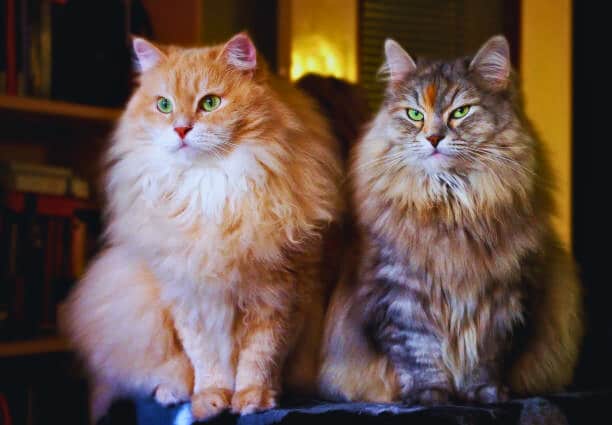
● Characteristics: Siberians are identified for his or her lovely lengthy coats and affectionate nature. Despite their fluffy look, they may be taken into consideration as hypoallergenic.
● Why They Are Hypoallergenic: Siberians produce lower stages of the Fel d 1 protein in comparison to other breeds.
● Care and Grooming Tips: Regular grooming is vital to save your matting and reduce allergens from unfolding.
Curious about rare cat breeds and unique dogs? Learn more about the striking Ocicat and the playful Basenji German shepherd mix dog known for their wild looks and lively personalities. Discover if these fascinating pets are the right fit for your home!”
Oriental Shorthair
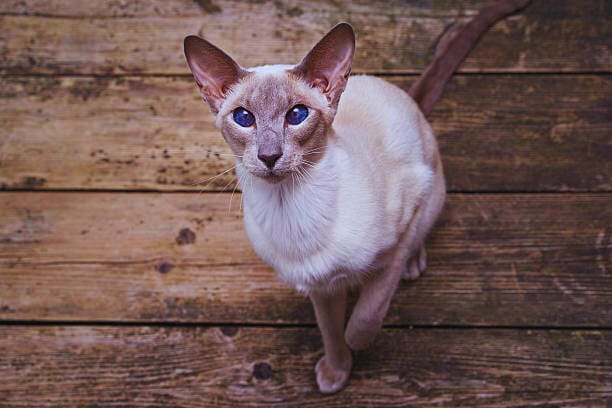
● Characteristics: Balinese cats have a silky coat and a sleek, stylish appearance. They are also known for being very vocal and social.
● Hypoallergenic Properties: The Balinese breed has much less Fel-1 protein in their saliva, making them a very good desire for allergic reaction sufferers.
● Care and Grooming Tips: Balinese cats require minimum grooming, but ordinary brushing helps manage loss.
Russian Blue
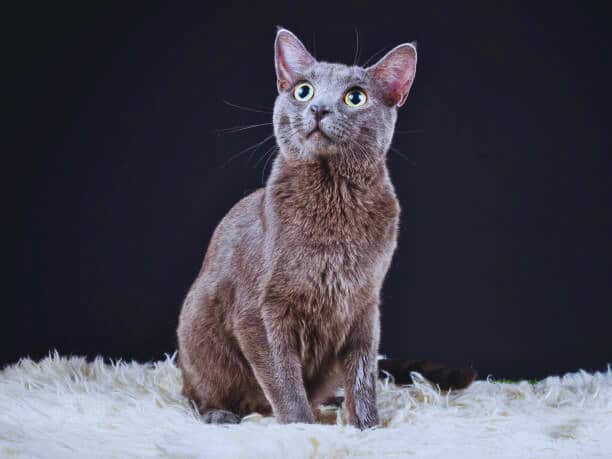
● Characteristics: Balinese cats have a silky coat and a sleek, fashionable appearance. They also are known for being very vocal and social.
● Hypoallergenic Properties: The Balinese breed has less Fel-1 protein in their saliva, making them a very good desire for allergy patients.
● Care and Grooming Tips: Balinese cats require minimum grooming, but normal brushing helps control shedding.
Love discovering unique pets? Meet these cats, famous for their love of water, and the energetic Beagle. To know more about these standout breeds and how they can add excitement and joy to your life, explore our cat and dog categories, like black cocker spaniel.”
Devon Rex
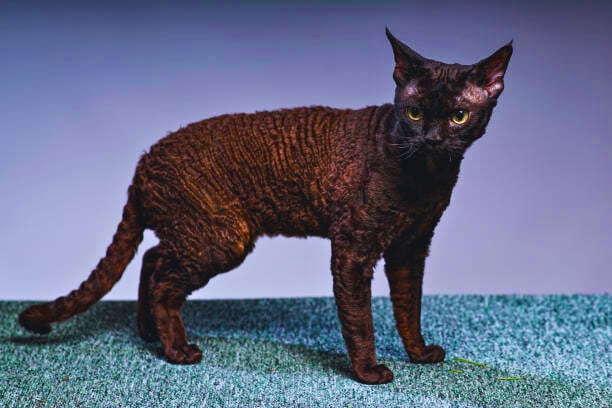
● Characteristics: Devon Rex cats have a unique appearance with their massive eyes, wavy coat, and pixie-like faces. They are playful and curious.
● Hypoallergenic Properties: Their quick, curly fur sheds less than different breeds, minimizing allergen unfold.
● Care and Grooming Tips: Occasional bathing and ordinary ear cleaning are endorsed.
Sphynx
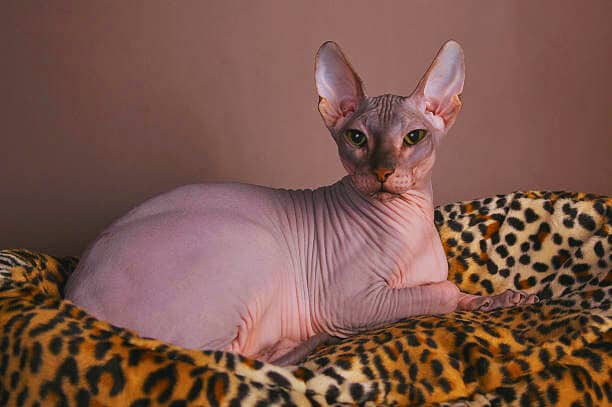
● Characteristics: The Sphynx is well-known for its lack of fur, which offers it a unique and placing look. They are pleasant, energetic, and love interest.
● Hypoallergenic Properties: Without fur to lure allergens, Sphynx cats are taken into consideration as one of the best breeds for allergy sufferers.
● Care and Grooming Tips: Regular bathing is vital to get rid of the buildup of oils and allergens on their pores and skin.
If you’re passionate about both cats and dogs, you’ll want to check out the Dachshund German Shepherd mix. Learn more about their distinctive traits and how they offer the perfect blend of beauty and companionship in our cat and dog categories!”
Cornish Rex
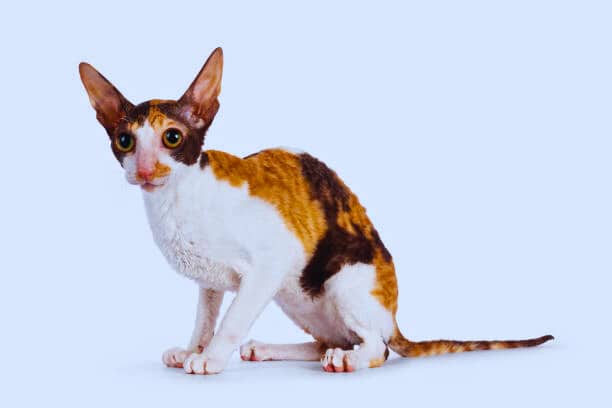
● Characteristics: Cornish Rex cats have a tender, wavy coat and a narrow, athletic build. They are known for being affectionate and playful.
● Hypoallergenic Properties: Their brief, curly coat sheds minimally, reducing allergen levels.
● Care and Grooming Tips: Regular brushing and occasional baths assist in manipulating allergens.
Javanese
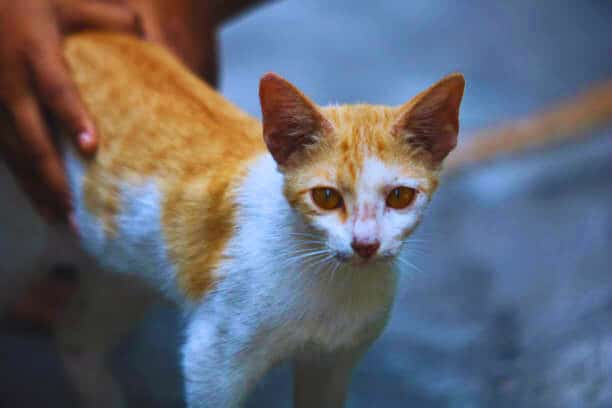
● Characteristics: Javanese cats are intently related to the Balinese breed and percentage most identical tendencies, which include a silky coat and a social, vocal nature.
● Hypoallergenic Properties: Like the Balinese, Javanese cats produce much less of the Fel-1 protein, making them a very good choice for hypersensitivity.
patients.
● Care and Grooming Tips: Regular grooming keeps their coat in pinnacle circumstances and helps manipulate allergens.
Understanding Allergens and How to Manage Them
Even with a hypoallergenic cat, dealing with allergens in your home is crucial.
Here are a few tips:
● Clean Regularly: vacuum carpets, upholstery, and curtains often to cast off cat hair and dander. Use a vacuum with a HEPA filter out to lure allergens.
● Use Air Purifiers: Air purifiers with HEPA filters can assist take away allergens from the air, making breathing simpler for allergy patients.
● Grooming: Regular brushing and bathing your cat can drastically lessen the spread of allergens. Make sure to apply hypoallergenic shampoos and consult your vet for exceptional grooming practices.
● Wash Cat Bedding: Frequently wash your cat’s bedding in warm water to eliminate allergens.
● Limit Cat’s Access: Consider preserving your cat out of positive rooms, just like the bedroom, to lessen exposure to allergens wherein you sleep.
Tips for Living with Hypoallergenic Cats
Living with a hypoallergenic cat may be a joyful revel in case you take the right
precautions:
● Create Allergen-Free Zones: Designate positive regions of your property, like your bedroom, as allergen-loose zones in which your cat isn’t always allowed.
● Keep Allergens at Bay: Change garments after handling your cat, and wash your palms frequently.
● Stay on Top of Cleaning: Regular cleansing can make a large distinction in retaining allergens underneath.
● Consult Your Doctor: If you’ve got extreme allergies, it is a very good idea to seek advice from a medical doctor who permits you to manipulate signs.
Conclusion
Hypoallergenic cat breeds provide a top-notch possibility for allergy patients to experience the companionship of a tom cat pal. By knowing which breeds are much less likely in all likelihood to produce hypersensitive reactions and following guidelines to control allergens in your own home, you can create comfortable surroundings for every one of you and your cat. Remember, it’s important to spend time with a cat before bringing it domestic to make sure that it would not trigger your allergies. If you’ve got any questions or want a similar recommendation, feel free to reach out to a veterinarian who makes a specialty of hypersensitive reactions.
FAQ
What Is the Most Hypoallergenic Cat Breed?
Because the Siberian cat has such low levels of Fel d 1 protein, it is frequently regarded as the most hypoallergenic animal.
Are There Hypoallergenic Cats That Don’t Shed?
All cats shed to some degree, but some breeds—like the furless Sphynx or the minimally shed Devon Rex—are almost completely non-shedding.
Can Hypoallergenic Cats Still Cause Allergies?
Yes, even though hypoallergenic cats create less allergens, they can still cause allergy reactions in individuals who are sensitive to them.
Which Hypoallergenic Cat Breeds Are Best for Families?
Siberian, Russian Blue, and Balinese are among the breeds known for being good with children and unique pets.
What Are the Grooming Requirements for Hypoallergenic Cats?
Grooming varies through breed. Some require regular baths, while others want frequent brushing. It’s vital to follow the endorsed grooming habit for your specific breed.
